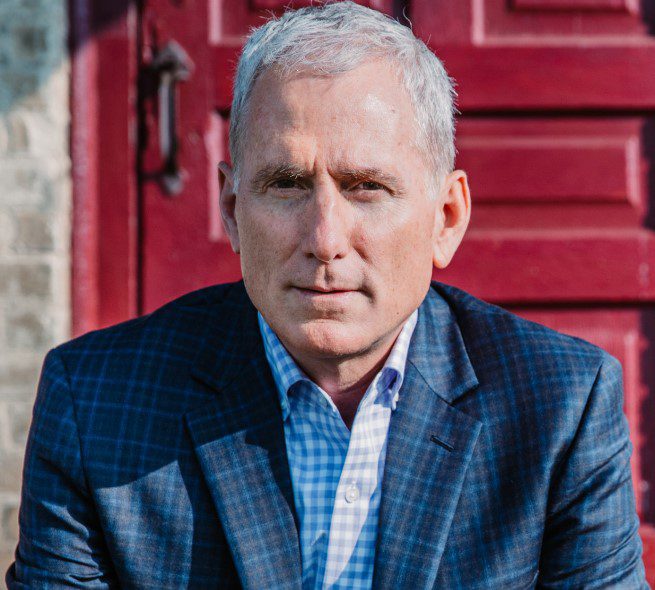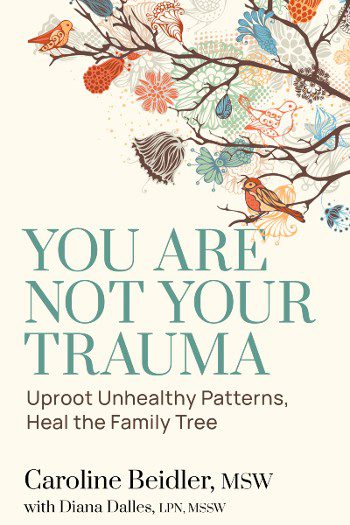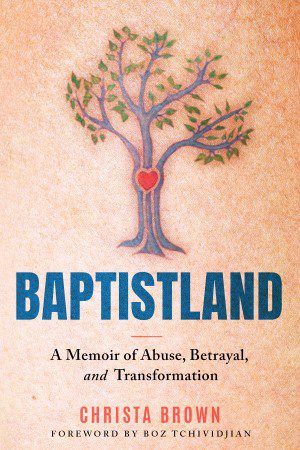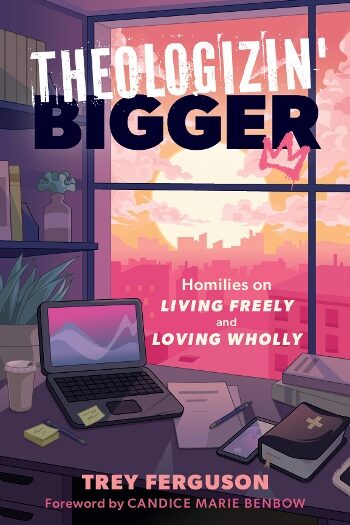If you want a short answer, here it is.
On the one hand, evangelicalism is an approach to Christianity that is the functional equivalent of a political movement. That’s a big statement, so let’s put it another way. Evangelicalism is a social club with self-determined rules and implicit or explicit requirements for membership. In this basic sense, evangelicalism is not a religion.
On the other hand, Christianity ideally can and should be defined as a spiritual or religious movement that has no regard for rules or requirements where anyone might feel excluded. Disregarding social club rules does not mean, however, that Christianity is apolitical, because it most assuredly cares about equal treatment for all and most explicitly cares about marginalized people—including those marginalized by social clubs, which are inherently political. Christianity, as a way of being in the world, is also political because advocates for empowering those on the margins.
Put in more concrete terms in today’s present context, if you are a woman, a person of color, someone who does not fit statistical norms of gender or sexuality, or a disabled person who wants to express themselves, contribute to a public conversation, or lead in an evangelical community, then you will find yourself a second class member or an outsider to the club. Alternatively, Christianity as a theology, philosophy, or way of life advocates for humility, fairness for all, and most especially for the voices of the marginalized. Christianity in fact says that the very experience of the marginalized offers clues to what is theologically, psychologically, ethically, and socially true for how religious people should comport themselves in any present context.
I am not naively suggesting that there is any such pure form of Christianity. To be inclusive is a tall order. As humans, our strength is to bond together in groups and communities. Our weakness, however, shows up when we want to keep the playground to ourselves. It is something of a paradox that on the one hand we must find sacred ways of forming community but on the other hand, as soon as we do form community, we often leave someone out.
That’s what evangelicalism does, perhaps no more intensely or unilaterally than in the United States. It leaves people out in spades. It is exclusionary unless you follow its rules, of which perhaps the biggest is the idea that Christianity is the best religion, the best club.
So it’s simple. If you want to be a better Christian, quit the evangelical club, and instead find your life among “the least of these.”
That’s the short answer. Below is a little longer one.
Sacred Stories Bind Us Together and Sustain Us
It’s always good to start off a conversation about religion by remembering that “religion” in its Latin root, religio, means “to bind” or “re-ligament.” It means to bring things together again.
So when it comes to meaning seeking, story-driven human beings like us, religion means creating stories in which we can all find meaning together. These are stories that we can share. By telling the same stories, they become part of our way of finding commonality.
What’s more, stories are steeped in meaning. Our stories have history assigned to them. We’ve told these stories as we’ve shared experiences together, tough times, good times, times when we’ve needed to pull together.
Regarding the stories around what many people call evangelicalism, they likewise re-ligament us together: being born again, keeping holy scripture as a focus on how to live our lives, and sharing our faith with others. These are some of the key stories, or at least the ideas the stories convey, around evangelicalism. They’ve arguably served some of us well for decades, even centuries. They were the north star for sustaining those of us who came to North America into an unknown territory as well as those who immigrated and were the children of immigrants. Our evangelicalism has played no small role in binding people together in community, to create civic programs, even to sustain us in times of war.
But evangelicalism is far from perfect and has deep flaws. The stories sustained us in the past were never sustaining to all. In our struggle to achieve in the worlds we’ve entered (or conquered), we overlooked, even willfully, how those stories didn’t include everyone. Or we might have overlooked how those stories shaped us into human beings that are ourselves rigid and inflexible. We aren’t as healthy and well-adjusted as we think. Like anything else in life, we will come to points where we need to exchange our stories with different ones.
Say It Three Times: Evangelicalism Is a Social Construction
Another way of defining or understanding a religion that binds us together is that religion is a social construction. In America, especially in evangelicalism, people tend to couch everything as theological, where with our stories we create propositions about the divine, about God, about what is most true. But these stories are only that, stories. When we imbue them with history and shared experiences, they become, and always have been, social constructions. We might think that something supernatural inspires these constructions, but what’s truer is that we’ve become so attached to our stories that any sense of sacredness or supernatural-ness about them is our own doing, however aware we are of it.
This is where we are with the social construction of evangelicalism. Let’s look at one of its central stories, “the great commission,” the idea of sharing religion with others.
The very idea that a religion is one that must be shared, and one where it is an imperative that others all over the world must be converted to it, only reveals that we are a people who want others to be like us rather than wanting to let people be themselves. We work to persuade and convince everyone, literally everyone, we may encounter to join our religion. This activity might even invigorate us. Yet have we fully considered how what we do devalues other people’s traditions, how it shows that our interest in them is purely to get them to be on our team, our club, and to look good in doing so? In other words, evangelizing is purely a social construction especially since its very definition means dispensing with all other religious social constructions.
Most people see evangelizing as a theological construction, a mandate from sacred text, supposedly written by a divinity. Even if that is true, because it’s translated through human language and action, it’s still more knowable as a social construction, which can help us see it more clearly. Seeing religion more pragmatically, without being too quick to say the word “reductionistic,” is a key part of what can help us with the problem of evangelicalism. Not everything we do as religious people has a purely theological root or beginning. We can’t possibly imbue everything we do as divine or biblical. If we do, we’ve made ourselves gods.
If religion is a social construction, could it be that evangelicalism can become stale? Could it be that there’s a fresher way to be spiritual in our world today, a way that might spur an even stronger or better adapted religious social construction? One that we can imbue with new sacredness, and help us be a better Christian?
Stop Evangelizing Others and Be a Better Christian
I’ve focused on this one part of evangelicalism, that is, evangelizing, because it is so deeply imbedded in evangelical culture that it has become unconscious, and so extraordinarily reinforced by the various kinds of stories we tell. The slant we put on stories around evangelical culture clubs makes us all slouch to the idea of converting others. I’m always amazed, for example, at how delighted evangelicals can be when they realize at the car repair garage that someone else is a Christian. Aren’t they everywhere in the United States? Thus, if leaving evangelicalism makes you a better Christian, there’s few other places to start than to stop worrying about other people’s souls. Doing so can lead to so many good things.
Not worrying about other people’s souls means that you can also worry less—in an evangelical way—about your own soul. Worrying less about souls means you can focus more on the present. You can embrace life in all its uniqueness and difference, paradox and ambiguity wherever you are at any one moment. You can be a better Christian by not worrying about others and simply taking care of them, and yourself. You don’t have to use the Bible as a litmus test, divine dictionary, or overrated rule book and can focus more on what looks like truth and good rules in a certain context. You can get a lot more done that way and make a lot more progress—if you can be that brave. You don’t even have to worry about whether there’s a divine being that explains everything. The greatest commandment of Christianity is to love, not to believe. That’s it. Doing love makes you a much better Christian that professing and arguing about beliefs, which evangelicals love to do.
Another way to say this is that many atheists—judging by their ethical behavior and concern for others—are better Christians than many Christians. So just try it, try something, and don’t just give up evangelicalism, give up theism, so you can be a better Christian.
David Morris, Publisher
Photo by RODNAE Productions/Pexels

David Morris is the author of Lost Faith and Wandering Souls: A Psychology of Disillusionment, Mourning, and the Return of Hope. He is the publisher of Lake Drive Books and a literary agent at Hyponymous Consulting, two innovative ventures working together to specialize in authors and books that help people heal, grow, and discover. David holds a PhD in psychology, society, and religion from Drew University. He lives with his wife in Grand Rapids, Michigan, and they have two daughters. Visit davidrmorris.me and follow on Threads @dvdmorris or Instagram @dvdmorris






